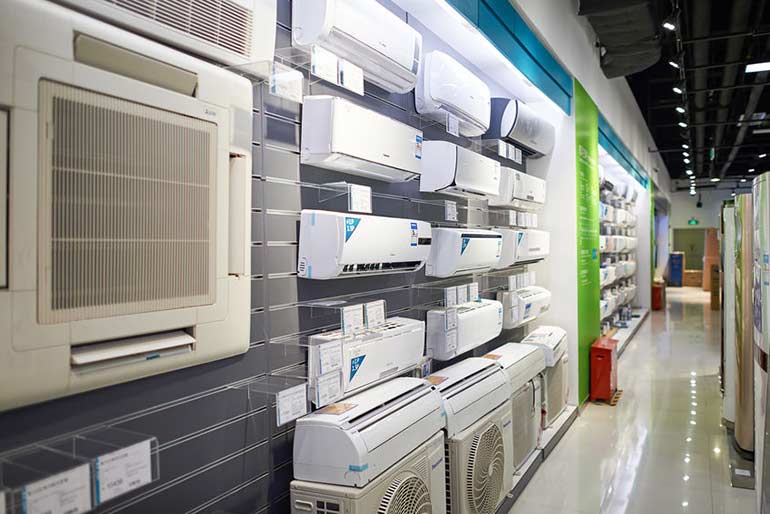Air conditioning faces Covid challenge
30th September 2020
UK: Market research company BSRIA has revised its global air conditioning sales predictions for 2020 and 2021 as a result of the disruptions caused by the Covid-19 pandemic.
Describing the last six months as “challenging for the industry”, BSRIA has interviewed key HVAC manufacturers and distributors in 20 major world markets for key products such as splits, VRF, rooftops and chillers.
This new data has been included in the latest update of the Global AC market study published this month. It provides the most up-to-date assessment of the global AC market performance for 2020 and expectations for the five years ahead.
The report sees falls across the board, with VRF sales down 4%, chillers down 6%, splits down 8% and rooftops down as much as 12%.
While supply chain and production were disrupted across the world, manufacturers closed factories and shipments of goods came to a halt for several months, not all countries have been impacted in the same time and not all products have been impacted in the same way.
BSRIA reports that while most countries took a serious sales dive in the second quarter of the year, China has experienced sharp sales decline in the first quarter of the 2020 and a gradual recovery from April on.
With many people working work from home following government advice, opportunities were created in the AC residential market, as consumers in many cases invested money saved on transport and leisure activities into having air conditioning installed over the summer. This was especially noted in Europe, BSRIA says.
This business is said to have softened the blow and, as with other consumer products, online sales of residential AC products have increased sharply. The increase in general on-line product sales also brought demand from the warehouses sector.
The light commercial markets with dominating retail outlets, cafés & restaurants, hotels and other leisure facilities applications have been hit hardest, BSRIA reports. Typical products that are installed in these applications are large splits (>5kW) and VRF units.
The sales fall in the hospitality industry was seen to be partly offset by the increased demand from buildings repurposed for healthcare premises, where VRFs with dedicated outdoor air systems were being installed to meet the required ventilation demand.
In some countries government stimulus includes investments in the education sector has also supported the market.
Overall, BSRIA finds that products mostly installed in medium to large non-residential projects have taken a deeper sales dive as such projects have often been disrupted by site closures, interrupted supply chains and social distancing rules as well as absenteeism of migrant workers. A significant number of projects were also postponed or put on hold.
However, new opportunities have also been identified, particularly in respect of indoor air quality. BSRIA reports a particularly high demand for products which can self-clean, ventilate and offer air purification. Many manufacturers have launched new product lines to meet the demand and going forward this is expected to become a trend, BSRIA reports.
In commercial applications, especially those with DX systems, interest is reported in the introduction of higher air volume, with DOAS, zoning, filtration of recycled air and cleaning air ducts to reduce the risk of cross infection in buildings. There is also a greater need identified for sensors and controls which are integrated to BACS systems to monitor the air quality and report on issues on any failing equipment.







